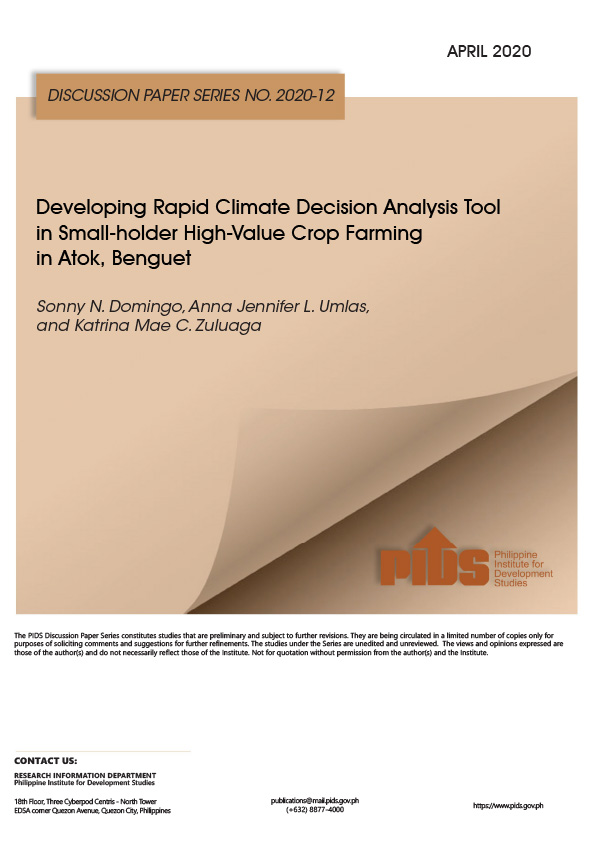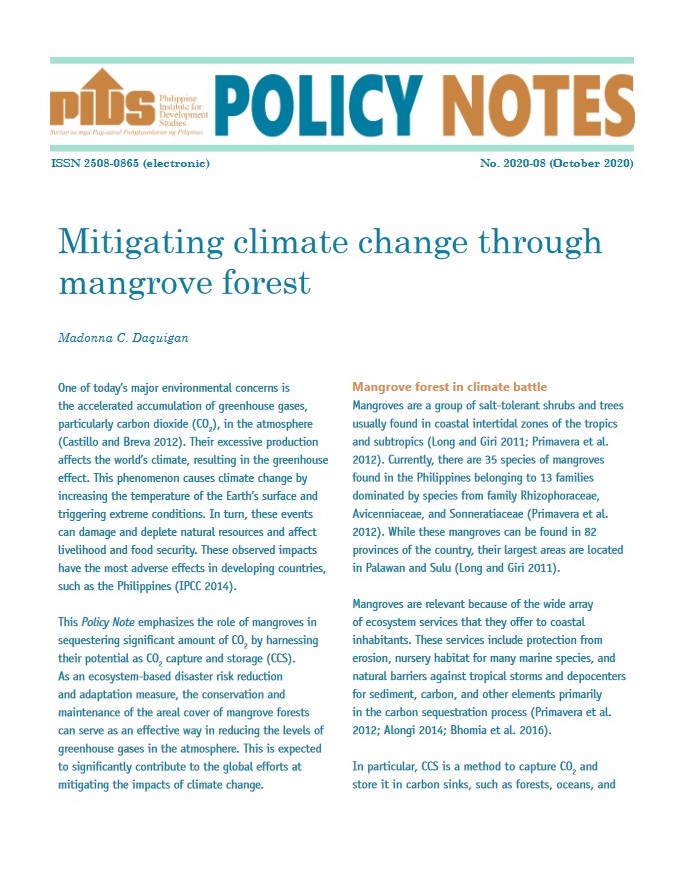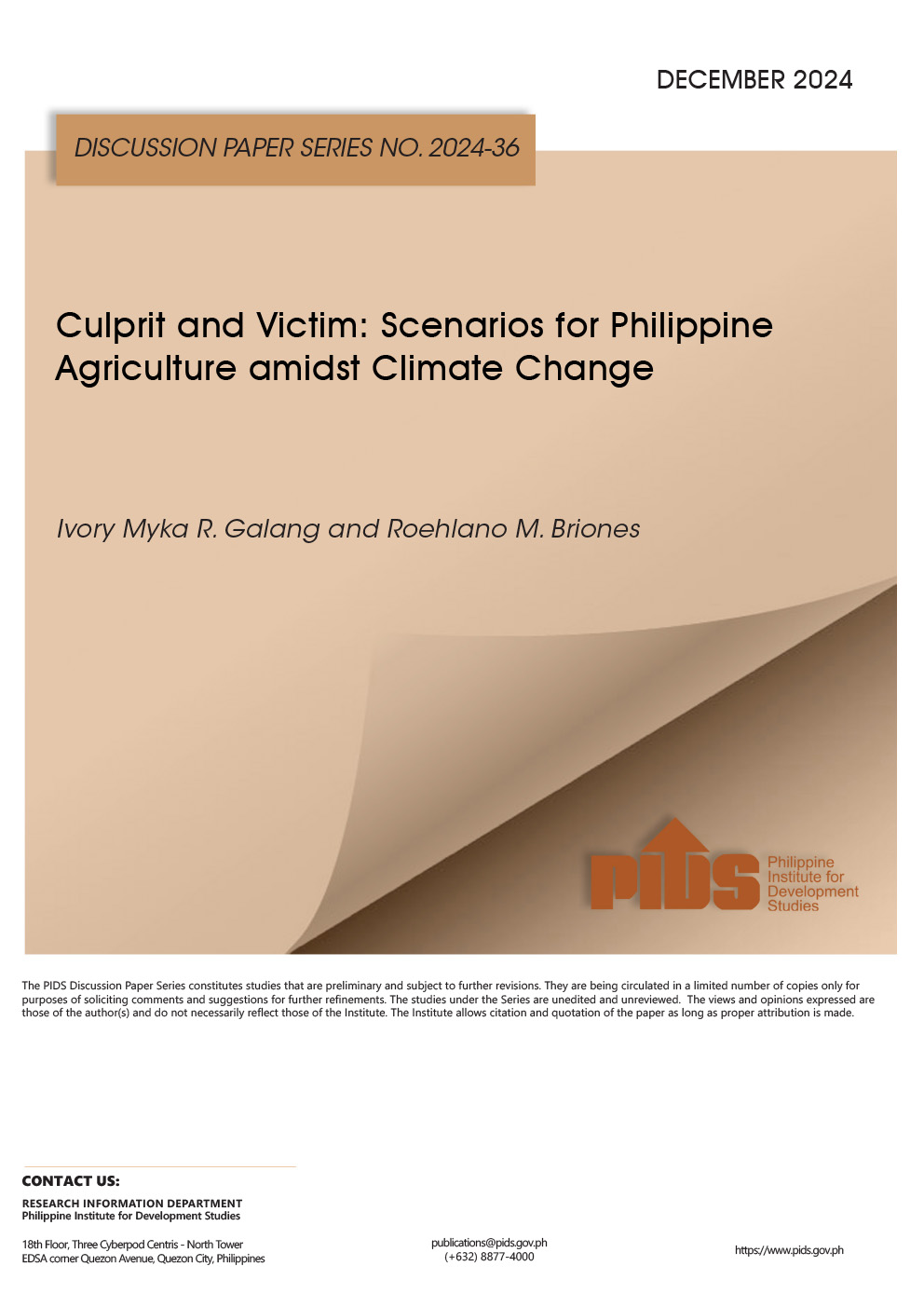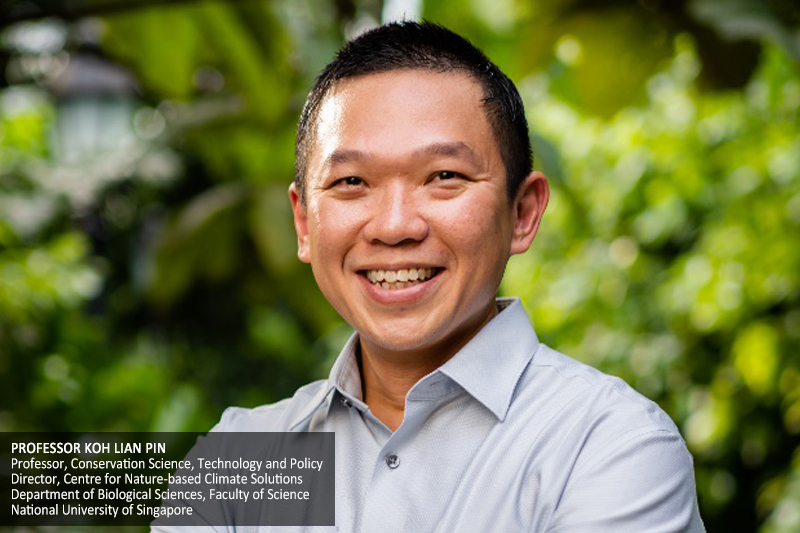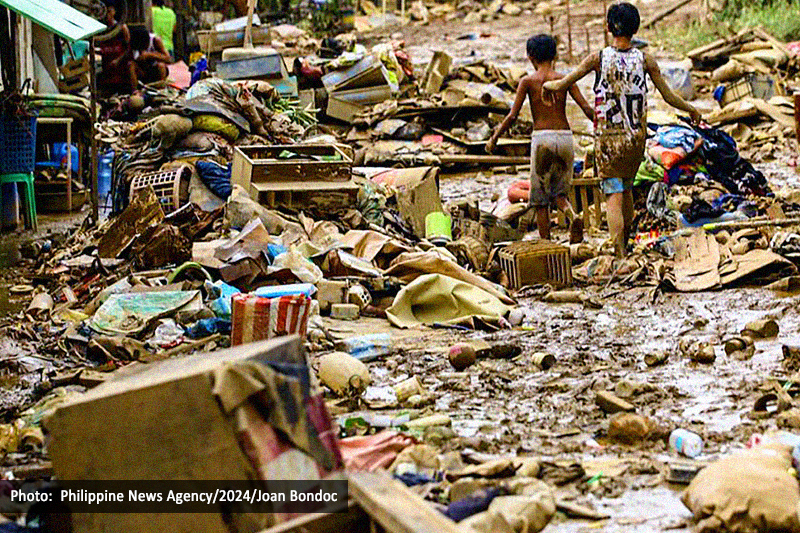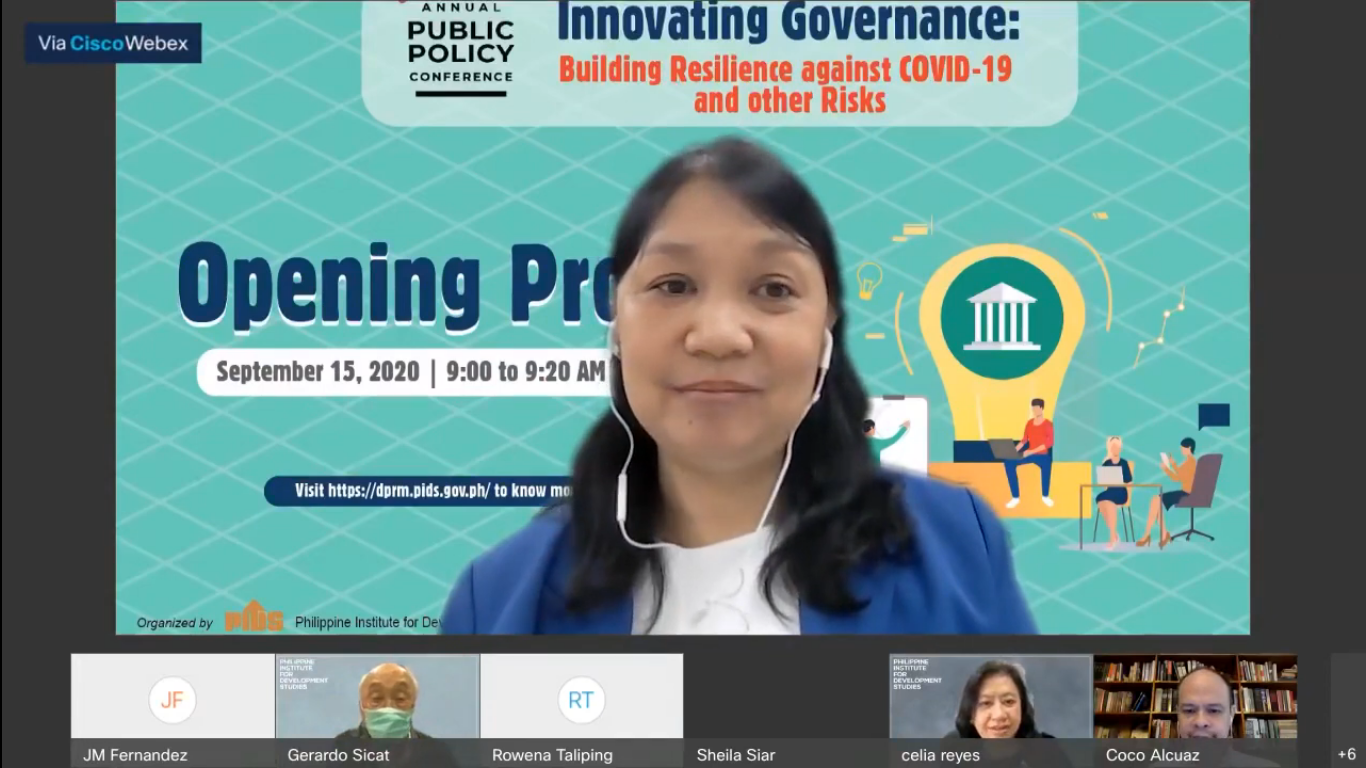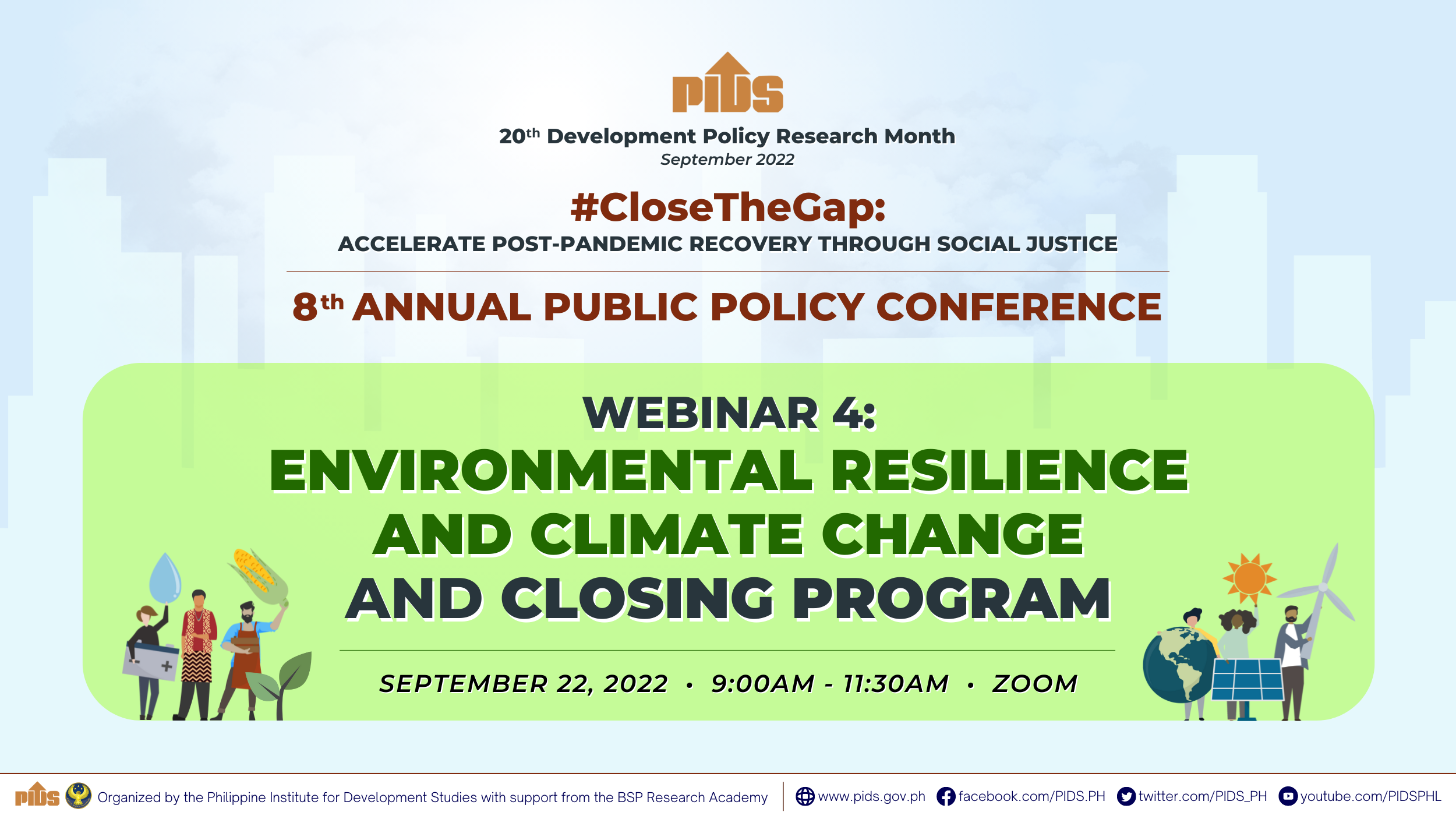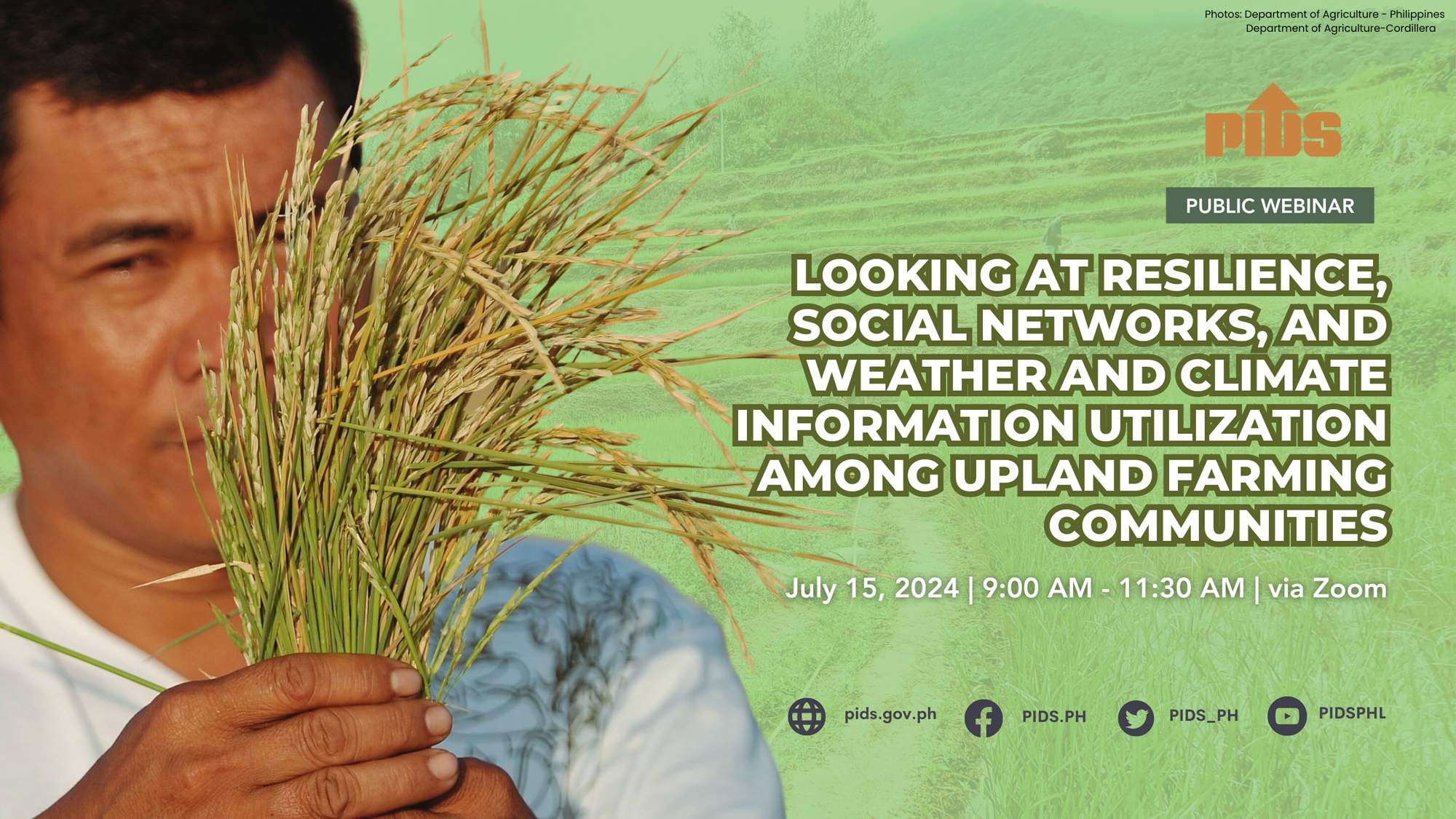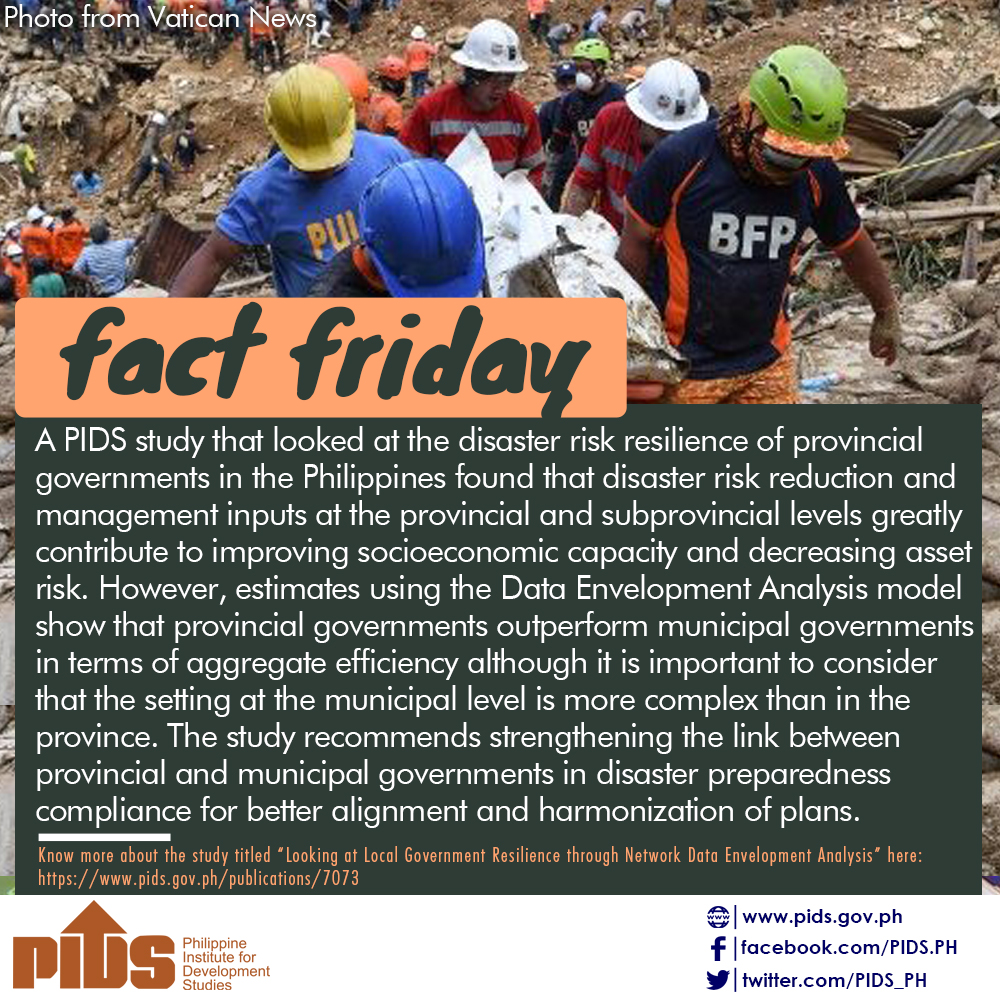It is imperative to foster collaboration among stakeholders, employ innovative approaches, and invest in robust disaster risk governance systems to bolster the Philippines’ resilience against future calamities.
Meanwhile, Sen. Christopher Go has been pushing two bills seeking the creation of a Department of Disaster Resilience (DDR) and the establishment of mandatory evacuation centers nationwide.
Experts forged this consensus during a recent webinar conducted by the Philippine Institute for Development Studies (PIDS) dubbed “Act Now or Pay Later: Enhancing Disaster Risk Governance for a Resilient Philippines”.
Organized by the Socioeconomic Research Portal for the Philippines (SERP-P) project of PIDS in support of National Disaster Resilience Month, the virtual event sought to promote awareness of disaster risk governance and explore strategies to strengthen the country’s resilience based on the findings and recommendations of studies by some of SERP-P’s partner institutions.
Dr. Marie Ela Atienza of the University of the Philippines (UP)-Center for Integrative and Development Studies and UP-Department of Political Science presented her study on “Enhancing Disaster Risk Governance and Resilience: Lessons from Supertyphoon Yolanda”, which highlighted the importance of multi-level governance structures for disaster risk reduction management (DRRM) based on the country’s experience during the said disaster.
“The national government played a significant role in disaster response, and coordination with international agencies was generally good. However, tensions between the government and international nongovernment organizations and parallel efforts and duplicated aid were observed,” Atienza said.
She also emphasized the need for a comprehensive and coordinated approach to disaster risk governance, with a focus on community involvement and empowerment, to enhance resilience and response capabilities.
She added that strengthening international coordination and response, including within the Association of Southeast Asian Nations, is a vital strategy.
Meanwhile, fellow presenter and Congressional Policy and Budget Research Department (CPBRD) executive director Novel Bangsal stressed the need to improve budget response capacity in the aftermath of disasters in the public sector.
His discussion focused on the government’s fiscal response to natural disasters in the context of disaster risk financing and insurance (DRFI) in the Philippines, as detailed in his policy brief “Managing a National Disaster Trust Fund in the Philippines”.
“Based on catastrophe risk modeling, the average annual loss to public and private assets caused by earthquakes and typhoons has been estimated to be approximately P176.6 million, with earthquakes accounting for 43.5 billion and tropical cyclones about P133.2 billion.
This underscores the urgency for the public sector to enhance its budget response capacity following a disaster,” he asserted.
He emphasized that effective disaster financing and insurance mechanisms can significantly improve fiscal management, ensuring prompt and sufficient financial capacity and the swift release of funds.
One of the study’s recommendations was the creation of a National Disaster Trust Fund to secure advance financing for disaster recovery, including crucial reconstruction operations.
This would consist of multiple accounts for specific applications like reconstruction and resistance and would encourage cost-sharing arrangements with local governments to reduce disaster losses.
Bangsal identified possible sources for the disaster trust fund, such as the contingent fund and the NDRRM fund.
For his part, PIDS senior research fellow Dr. Sonny Domingo presented a study on “Looking at Payments for Ecosystems Services in the Philippines” that explored the potential of payment for ecosystem services (PES) as a tool for disaster risk reduction and climate change adaptation.
PES involves voluntary transactions where buyers pay providers for environmental services, creating incentives for sustainable resource management.
“We have extensive damages and casualties from disaster events, and unfortunately, we have inefficient markets on environmental services provision. This makes PES a good option moving forward to have sustained interventions at the local and national levels,” he explained.
Domingo recommended various ways to institutionalize PES and related initiatives, including capitalizing on evolving PES definitions, replicating successful PES arrangements, and increasing private sector involvement.
The three studies collectively called for a strengthened disaster risk governance framework in the Philippines and enhanced resilience. Urgent and concerted efforts are needed to establish an efficient and robust DRRM capable of effectively mitigating the effects of disasters on human lives, infrastructure, and the natural environment.
Go filed Senate Bills No. 188 and 193 in a bid to bolster the country’s disaster preparedness and response capabilities.
Go said that the government should remain proactive in its approach in dealing with disaster-related situations since the country is highly vulnerable to natural calamities.
He said the DDR, an independent government agency will be dedicated to strengthen the nation’s resilience against the impacts of natural and human-induced disasters.
The DDR aims to consolidate disaster-related functions and resources from different agencies under a single, unified body.
By streamlining disaster response efforts, the department can facilitate quicker and more efficient aid delivery to affected communities during times of crisis.
The Office of Civil Defense has voiced support for the establishment of the DDR, emphasizing the importance of such institution in improving operations in managing and responding to future crises.
Aside from the establishment of DDR, Go also pushes SBN 193, which calls for the creation of mandatory evacuation centers across the Philippines.
These evacuation centers are designed to be equipped with necessary facilities to provide temporary shelter and essential services to evacuees during disasters.
The senator noted that these evacuation centers will be strategically placed in areas less prone to hazards, ensuring the safety and well-being of evacuees during disasters. Furthermore, the centers will be equipped with essential amenities such as food, clean water, medical services, sanitation facilities, and temporary sleeping quarters.
Go said the Philippines, located in the Pacific Ring of Fire and the typhoon belt, is no stranger to the destructive forces of nature.
“Yearly, the country faces the threat of typhoons, earthquakes, volcanic eruptions, landslides, and other hazards. These disasters not only result in loss of lives and livelihoods but also impede economic progress and development,” he said.
To minimize the devastating impact of disasters, Go underscored that comprehensive disaster resilience measures are imperative. The senator is confident that by supporting these priority bills, the Senate and the Filipino people can collectively work towards a safer, more resilient nation, where communities can recover swiftly and thrive even in the face of adversity.

